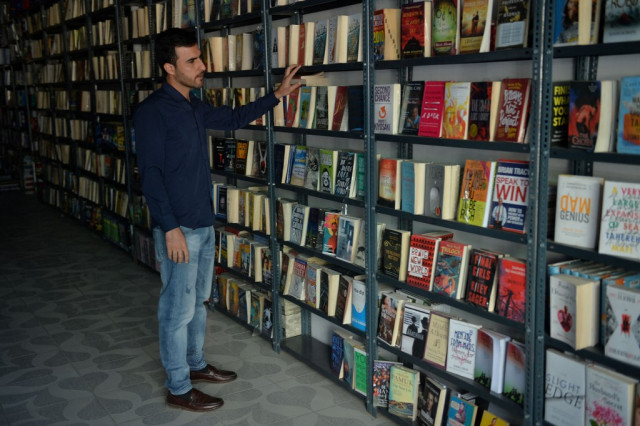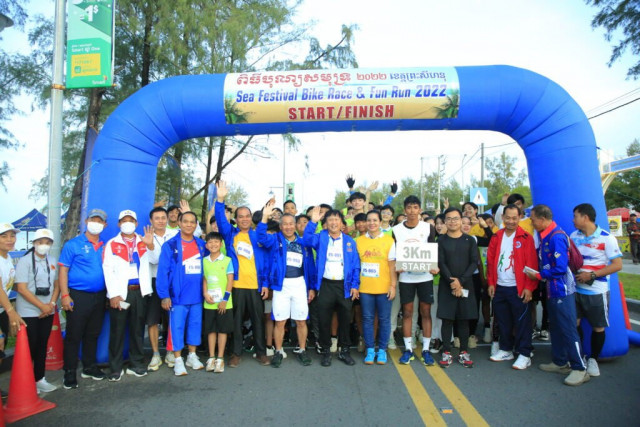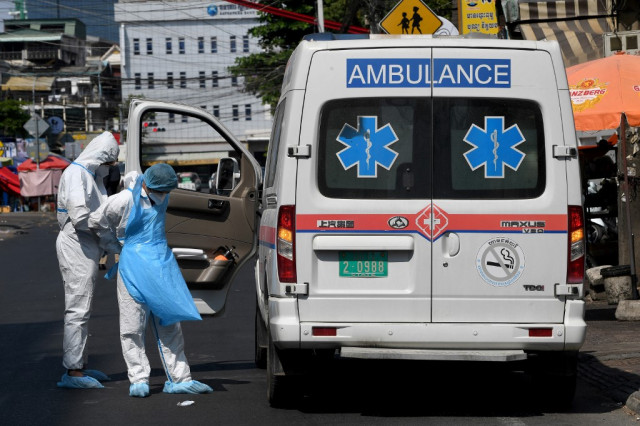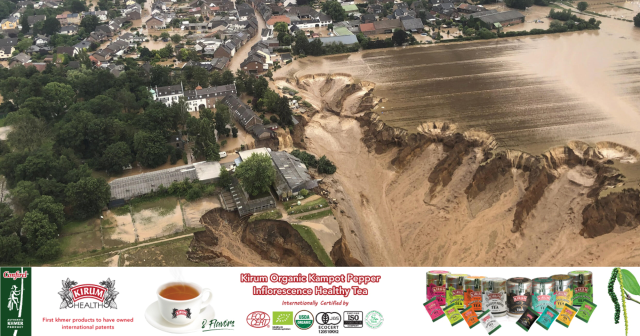Cambodia-UK at 70: Looking Back and the Way Forward
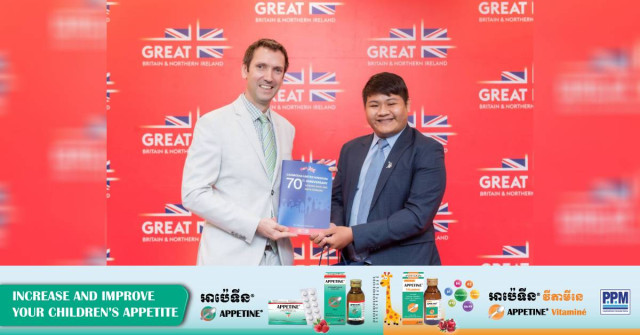
- By Rin Ousa
- November 29, 2023 2:05 PM
PHNOM PENH – This year marks the 70th anniversary of Cambodia-United Kingdom diplomatic relations. International relations graduate student Chhuon Vanndasambath has launched a new publication called Cambodia-United Kingdom at 70: Looking Back and Ways Forward.
Vanndasambath got his degree from Paragon International University and is now a general coordinator of the ASEAN-UK Young Leaders Initiative.
Rin Ousa: You have explored the history of diplomatic relations between Cambodia and the United Kingdom in your publication. Can you tell us about it and whether you think these countries have similar histories?
Chhuon Vanndasambath: This book is a unique study of Cambodia-UK relations from 1953 to 2023. This book also lays the groundwork to raise awareness of this relationship and celebrate its 70th diplomatic anniversary.
Cambodia-UK relations have had ups and downs and have been cut off at times. Now, they are strong and promising. Both countries have shared history but not in the same way as the United States or China.
Rin Ousa: What motivated you to delve deeper into Cambodia and United Kingdom relations?
Chhuon Vanndasambath: There are three main reasons. The first one is my interest and passion. In the last six years, I went to London and got immersed in their culture. I had been dreaming of traveling to the United Kingdom since I was a child.
The idea of studying Cambodia and the United Kingdom in greater depth popped up.
Second is my vision. Back then, these countries had yet to reach this anniversary. Cambodia and the United Kingdom have shared common interests and a good future together.
I see the United Kingdom is a strategic partner for Cambodia. It comes into a reality now that the United Kingdom has become a dialogue partner with ASEAN as well as Cambodia. The countries have strengthened relations to another level.
The last reason is because of its uniqueness. I think that many IR students have studied China and the United States. They mainly focus on the bipolarity of the main powers. Along with my interest, I wanted to make it unique as I have never seen other people research these countries’ relations.
Rin Ousa: You have covered the relationship in different time frames. What factors strengthen their relations?
Chhuon Vanndasambath: This book covers post-French colonization to the present when both celebrate 70-year diplomatic anniversaries.
Three significant factors strengthen their relations. The one is understanding its foundation. Contacts were cut off at the time of the Khmer Rouge. The British people did not support this brutal regime so they had no choice but to cut off relations with Cambodia.
The second is external relations. As mentioned, the UK became an ASEAN dialogue partner, and the UK thinks of ASEAN as the heart of the Indo-Pacific Tilt strategy.
Finally, the UK always maintains patient diplomacy that that makes it more attractive than other countries to emerging and developing economies.
Rin Ousa: How do you think this publication will contribute to IR enthusiasts, scholars and young professionals?
Chhuon Vanndasambath: I think because is the first comprehensive study from the start to the present about these countries’ relations. It may significantly contribute to bringing ideas to the next generation who are interested in studying this relationship and expand further engagement of IR enthusiasts, scholars, and young professionals.
Last but not least, it will let the public see what Cambodia and the United Kingdom have accomplished together in these seven decades.
Rin Ousa: It is true that writing takes so much time and requires extensive efforts, so did you encounter some challenges or difficulties while writing this publication? And how did you overcome them?
Chhuon Vanndasambath: It is true that writing a book is very complicated especially when you write a topic that no one has done before. It took me three-years of data collection, research and writing to make it possible. It is part of my dissertation in university. I had challenges finding information because it is quite a new topic.
I have three main tips to share with those who want to take a plunge in writing any publication or book: Dare to reach-out, dare to explore and keep up your spirits.
When I found the study difficult, I emailed the British Embassy in Phnom Penh and the Royal Embassy of Cambodia in London. They were so kind to me and guided me where to find the information.
My ultimate goal is just to create a bigger community for those who are interested in Cambodia and the UK or ASEAN and the UK studies. When we have a bigger community, we can expand our discussion, exchange of views and networking.
This is why we have created a youth-led project called “ASEAN-UK Young Leaders Initiative”.
Rin Ousa: Scoping is essential for writing, do you have any effective tips to scope your ideas down before writing any papers?
Chhuon Vanndasambath: Know the purpose of your writing, your area of studies, your area to focus, and what style or way you want to deliver, and lastly whom you want to write it for.






